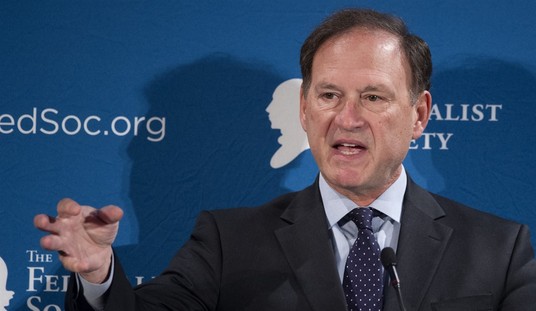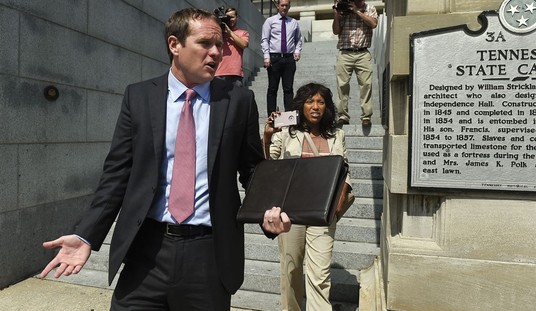The hallmarks of what constitutes “science” have been “settled science” for a century or more:
-
Pose significant questions that can be investigated empirically.
-
Link research to relevant theory.
-
Use methods that permit direct investigation of the question.
-
Provide a coherent and explicit chain of reasoning.
-
Replicate and generalize across studies.
-
Disclose research to encourage professional scrutiny and critique.
These are all pretty self-evident and is should seem obvious, in a free society, that if a federal agency is trying to re-order our economy and our way of life it should do so on the basis of actual facts AND the facts should be transparent so that the affected people can verify that the proposed re-ordering is worthwhile. Within the federal government, this rule is simply ignored. Studies are used to develop rules that are not publicly available, the data from those studies is hidden, the veracity of the studies is never tested outside the circle of advocates with a vested interest in the outcome. The abuse of science is legendary within “climate science.” The famous hacking of the emails of the Climate Research Unit of East Anglia University showed why it is folly to allow science that is being used to develop public policy that would, if taken seriously, push civilization back to the dawn of the Iron Age to be developed in secrecy. On the positive side, we all know the phrase “hide the decline.” In fact, NOAA has refused to allow Congress to examine the data that it has used in its climate models. Consider that for the sheer arrogance of it all. NOAA wants Congress to enact legislation based on its research but refuses to show Congress the research.
While NOAA gets the most attention, the biggest offender is the EPA which routinely uses studies that have never been independently evaluated to develop rules which cost America thousands of jobs and billions of dollars in lost productivity. Yesterday, the House voted to make the EPA’s use of science in rulemaking transparent.
The House voted Wednesday to restrict the kind of scientific studies and data that the Environmental Protection Agency (EPA) can use to justify new regulations.
The Honest and Open New EPA Science Treatment Act, or HONEST Act, passed 228-194. It would prohibit the EPA from writing any regulation that uses science that is not publicly available.
It’s the latest push by House Republicans to clamp down on what they say has turned into an out-of-control administrative state that enforces expensive, unworkable regulations that are not scientifically sound.
The objection is laid out in this whiny little article:
Here’s the first problem: to make informed decisions, some of the data EPA needs to use can’t be made public without doing damage to real people or to businesses.
Almost all of EPA’s work touches on issues of human health — relying, for example, on research that uses health records of asthma sufferers and their asthma attacks to see if they are associated with air pollution.
Data that involve private medical records of individual patients cannot – ethically or legally – be made fully public.
Here’s another example: businesses sometimes claim that information about their operations is legally protected from public release because it is “confidential business information.”
But under this legislation, EPA would be barred from relying on any study or any analysis unless they made all the underlying information publicly available.
…
Here’s a second problem: even setting aside the enormous confidentiality problems in this legislation, it would be extremely costly to implement.
…
Here’s a third problem: the bill would prohibit EPA from finalizing an action unless all information relied on is “publicly available in a manner that is sufficient for independent analysis and substantial reproduction of research results.” Yet for many key health studies, it could take years — decades even — to “reproduce” some key research.
Let’s answer them in reverse order.
I don’t care. Without studies that meet the criteria of being science, agencies should not be engaging in willy-nilly rulemaking based on feelings. If things are that dire, take it to Congress and have them pass a law.
I don’t care. How much damage is done to the US economy each year by regulatory compliance? $1.9 TRILLION.
The first objection though is filled with fallacies. I think everyone would agree that personally identifiable medical information should not be tossed about the countryside, hence the amazement a lot of us had when it was decided to have the VA and Social Security inform law enforcement about medical information of some potential gun purchasers. Potentially personally identifiable information is routinely used in policy-making. The best example of this is the US Census. Without elaborate masking procedures, a modern computer could identify all census information about a particular household with very little effort. But Census Bureau data is the gold standard of data and it is available to every citizen.
Health information is routinely used in making public policy. That health information is very often widely accessible. It is remarkably easy to mask personally identifiable information in a way that prevents individual patients from being identified but which does allow the relevant data to be used. Indeed, the statement about data from individual medical records is factually false. If you go to the Privacy Rule in the Health Insurance Portability and Accountability Act (HIPAA) you find the standard for using medical information in research (full disclosure, I spent five years on an Institutional Review Board reviewing data use proposals):
If the protected health information (PHI) has been de-identified in accordance with the standards set by the Privacy Rule at section 164.514(a)-(c) (in which case, the health information is no longer PHI)
If the information is released in the form of a limited data set, with certain identifiers removed and with a data use agreement between the researcher and the covered entity, as specified under section 164.514(e)
The complaint about using proprietary data looks real good as long as you keep the lights turned out and a blanket over your head. It is difficult to imagine HHS making tobacco policy based on data developed by tobacco companies which was a closely held trade secret. I think anyone can see the problem with that scenario. Without the data being public, and the methodology being transparent you can’t reproduce the results. If you can’t reproduce the results you aren’t dealing with science, you’re dealing with opinion.
The objections to this rule are bogus in all respects but one. The critics are right that this will slow down agency rulemaking. They don’t mention it but making the data public will allow more successful challenges to federal rules. And these, my friends, are features, not bugs.














Join the conversation as a VIP Member